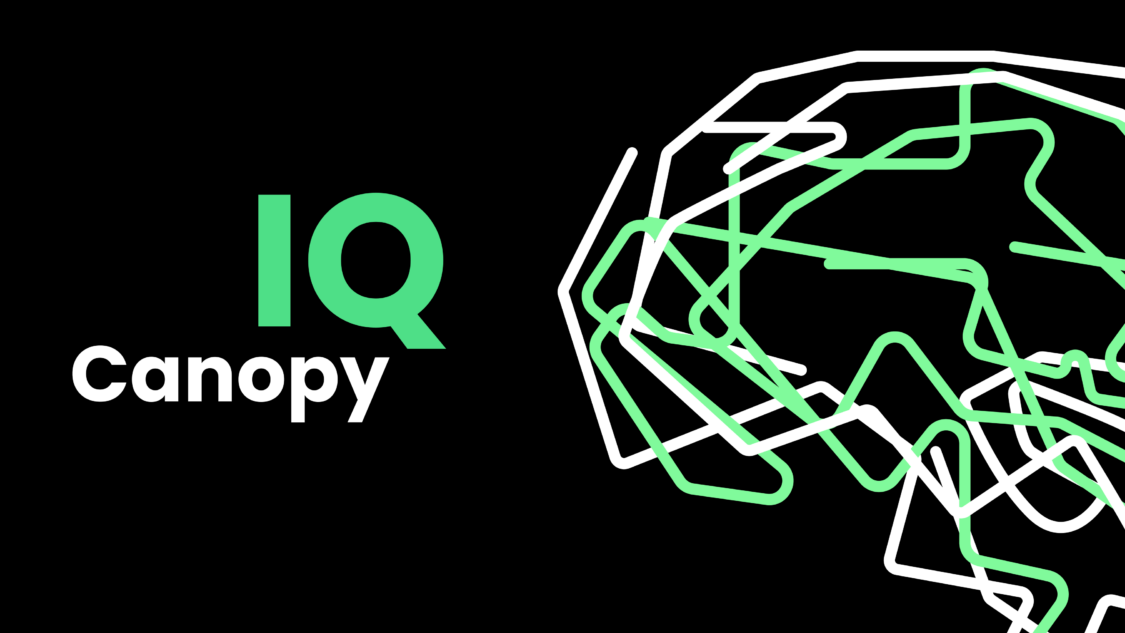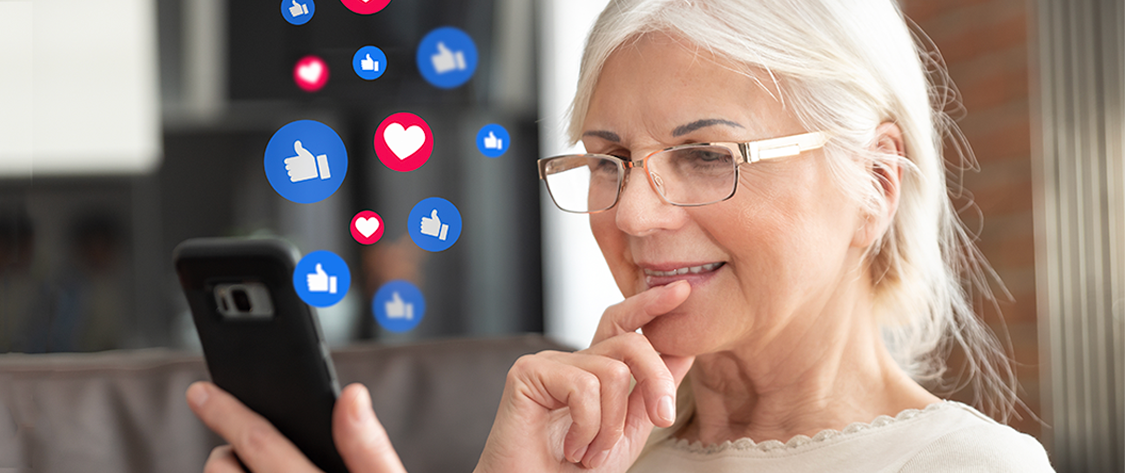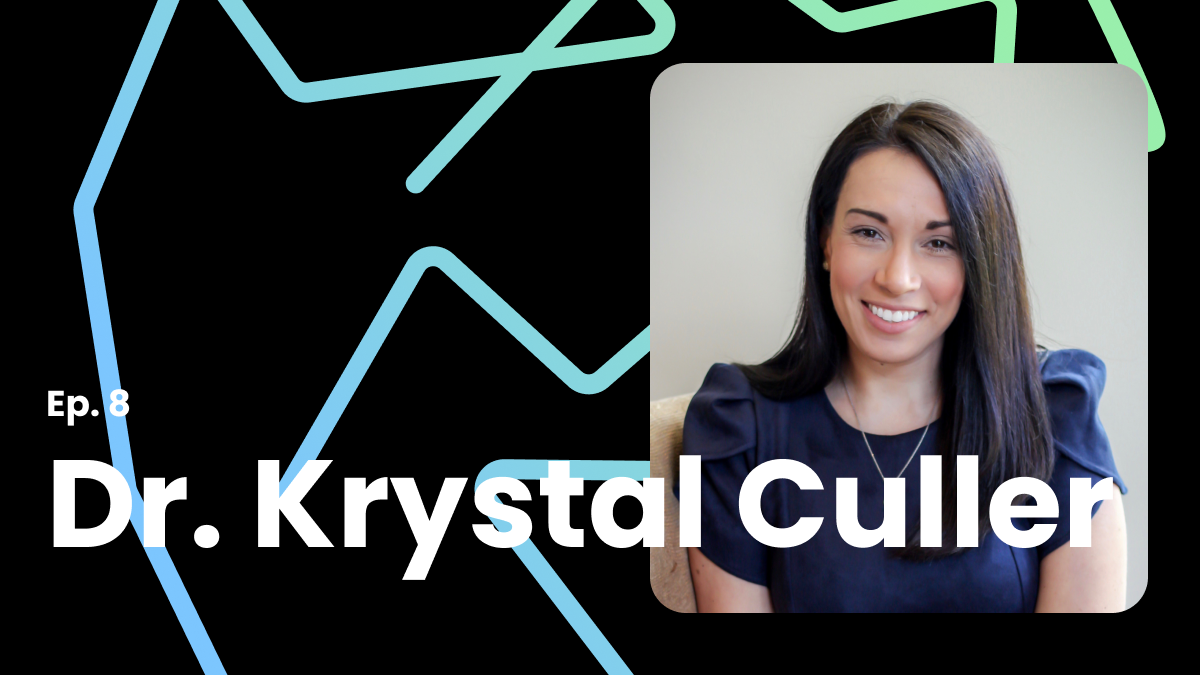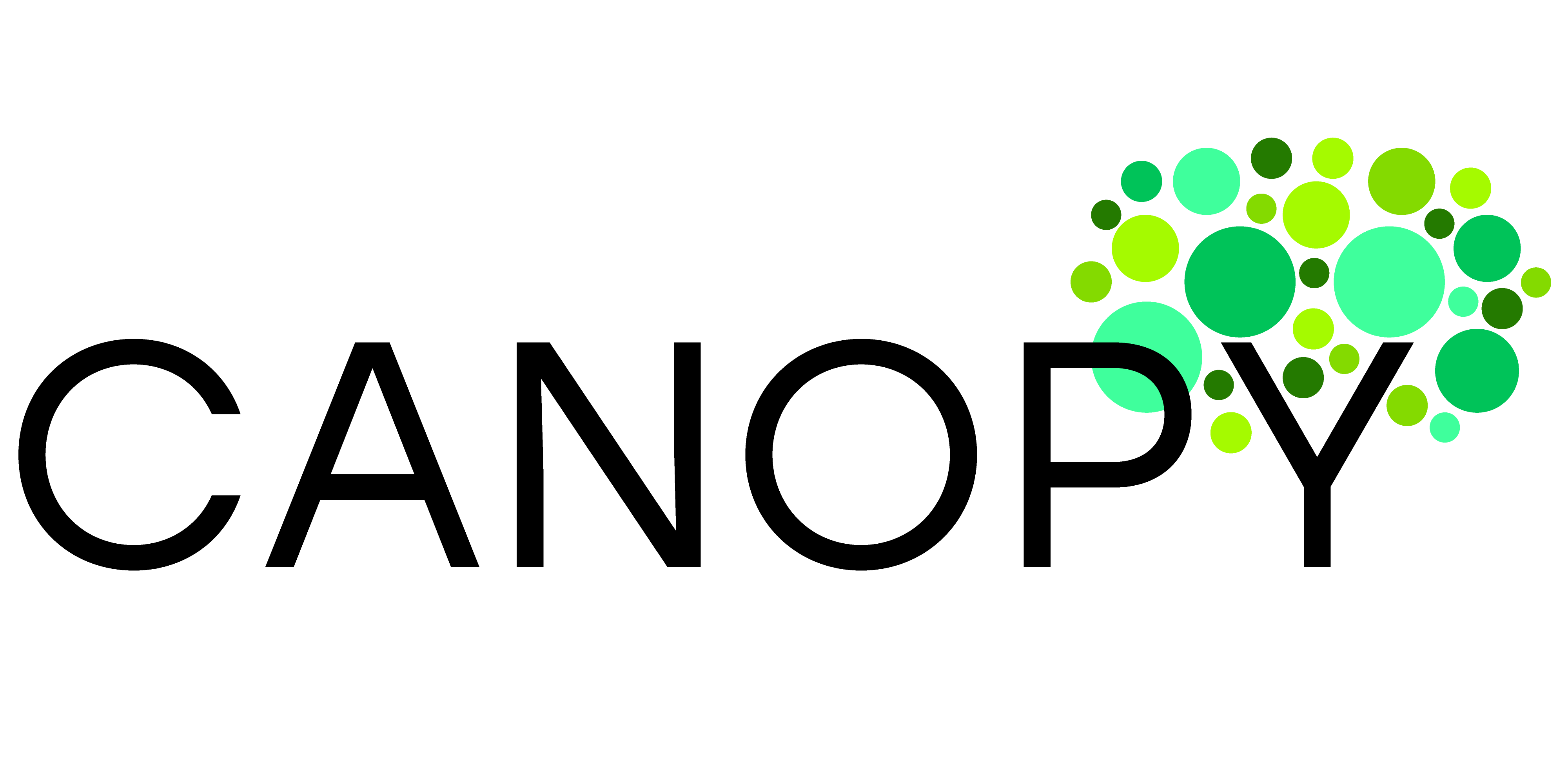- Blog
- An Interview with Dr. Krystal Culler, Founder of the Virtual Brain Health Center
Subscribe to our
email list
Stay updated on industry
news and ad tech insights

Canopy IQ Podcast
Welcome to the Canopy IQ Podcast. Tune in as expert voices and special guests from a wide range of disciplines help guide our understanding of the ways business intelligence, branding, machine learning and digital advertising are reshaping AgeTech in the 21st century.
Read More

Argentum 2023
Canopy founder Bobby Youngs will participate in Argentum’s “Speed to Lead is Key” HR Recruiting Panel on May 9th. More info coming soon!
Read More

The Senior Living Social Media Playbook
Take the guesswork out of your social media campaign strategy with this downloadable guide
Read More
An Interview with Dr. Krystal Culler, Founder of the Virtual Brain Health Center

Adam: Welcome to the Canopy IQ Podcast. In this episode, we’re joined by Dr. Krystal L. Culler, founder of the Virtual Brain Health Center. Dr. Culler is an award-winning holistic brain health expert with almost two decades of experience in behavioral science. Today’s Canopy IQ podcast is sponsored by Digital Alchemy, a digital marketing agency specializing in award-winning SEO and state-of-the-art website development. Learn more at godigitalalchemy.com. Welcome, Krystal. You’ve got this very specific philosophy around brain care, and according to your website, your mission is brain care for all. It’s pretty ambitious.
Dr. Culler: Yes, and I think it’s really reflecting the shifts that we’ve seen in the field, even coming out of a pandemic. The brain is at the top of mind for topics for so many people, but previously, we always thought brain health is for individuals who don’t have a chronic health condition, don’t have a brain health or brain-related condition, or a mental health issue.
You can see how quickly a lot of people you may know or people who are tuning in just get nixed off the list. Really, the shift has now been that brain health for every single person. It looks different if we’re living with the brain condition or managing mental health, managing stress as well. It just looks different for us. Now it’s that mantra, it’s for every single person, and we all have a right to better brain health and care. I’m excited to be having this conversation with you today.
Adam: Obviously, we’re all competing for “market share”, whether it’s an Instagram post or an infographic or what have you. I felt like I could scan your website, select the content I wanted to look at, and extrapolate the key points very quickly. You state that brain health equals 90% lifestyle and 10% genetics, and that 8 in 10 Americans are affected by brain health issues. I realize our brains are under constant stress, but that number is mind-boggling.
Dr. Culler: I appreciate that you picked the two statistics that I really help, I think, bring this topic to light. One with brain health is we don’t get to blame as much as our genetics that we might want to on our health and wellbeing on that 10% side, but if you really focus in on that 90%, there are things we can do in our lifestyle, every single one of us, that we could improve to ideally optimize our brain care and our performance.
I think it’s that shift in perspective. What we learned with science as it’s emerged is genetics play a smaller role and lifestyle is very big, and lifestyle helps offset some of the genetic predispositions we have or symptoms we have. It helps us maintain or have a longer health span as we like to talk about it in this area.
I think that’s an exciting part of why many people want to come in to the conversation on brain health, is they’re looking for this information they’ve heard, whether it be on media, like a podcast, or they might pick it up in a newspaper or hearing their friends talk about it and start to understand what are these concepts, what do they mean to me, and what can I actually do today to prioritize my own brain care? People take up the charge in those small shifts. I think that’s the exciting part of those statistics we have is it’s for every single one of us.
Adam: Krystal, can you share some background on your own journey and what led you to become an expert in brain health and brain science?
Dr. Culler: I appreciate that question. I think I’ve answered it in different ways, mainly because when you get into a space and you look back on what you’ve experienced and you try to find key pivotal moments that helped you shift to the work you were doing. For me, mine was in graduate school. I ended up having a grade mal seizure. Of course, from studying the brain, my brain was then the forefront of my life in decision-making and care management. At the time, my mom was navigating a very complex healthcare system, seeking a diagnosis for MS, and my grandmother was at the end of her road on journey with dementia.
Just seeing women’s brain health concerns at the forefront for these prominent figures in my life, and how that helped shaped my career, to then realizing the best part of brain health is it’s all these different aspects of ourselves, from our physical health, our emotional health, our social health. It just seemed like a natural shift in progression for the work I was doing, where it could become a little more holistic, so bringing out a broader view, but then being more specific, which, what are the things people can take charge of today?
If I look back, I never would’ve thought having a seizure was the moment that was shifting my career. Now, I realize it’s a blessing in disguise. It aligned with the work I was doing before for others, but it let me be able to talk more about my own brain, my care and journey, and bring it into the brain health space where so many people are still navigating complex systems and making decisions of how to invest their finances for their own brain care and their wellbeing. It’s been an interesting journey, but I’m grateful to have traveled and to then develop services and programs that support people around this topic of brain health in their day-to-day lives.
Adam: I wanted to get into something that you bring up in your website, which I thought was really fascinating as well, and that is that this concept that brain health isn’t expensive, that really struck a chord. Most people, I’ve always operated under the assumption that it is, that it’s costly, that it’s complicated, and that there are significant barriers to wellbeing. This idea, this theory that it all comes down to– well, not all, but that there’s a significant element in nature and not nurture can be confusing. Can you share a little bit more?
Dr. Culler: I think that’s a wonderful question. Our goal when we added that concept into our philosophy of care of brain health not being expensive is because that’s a little bit against the traditional narrative. We look at more as an investment. For many of us, we think of monetary investment, which then has a cost and a higher price tag. Really when it comes down to brain health and what we’re starting to think about the things we want to do to optimize our brain care, it’s an investment of our time and our energy.
What the brain health science really shows is the way we spend our time through our work, through our recreation, through our leisure, are what adds benefits to our brain or sometimes is a little more detrimental. If you’re not sleeping well, that’s an aspect that would be detrimental, versus if you’re making the investment of your time to prioritize your sleep, that is the investment you make that then gives you a boost to your brain health.
We always want it to come at it from that perspective of many of the things we are probably doing as part of our day-to-day routine, learning new things, socializing, connecting with others, moving about in our environments, whether it’s purposeful exercise or just your day-to-day activities, how all of that adds up to the small components of brain health, and that there’s not always a high cost affiliated with us.
We look at it as that investment of a shift into your time and energy, and how that is helping your overall health and your well-being. We really wanted to make sure that was accessible for people to understand there are ways that have an expense, there are programs that are very expensive for people to do, there’s rigorous protocols. Many times, you’re working with health care providers and for a very specific need that you have.
When we’re looking at the holistic brain health for yourself, we are looking at the things you are likely already doing or areas you could improve. For many of us, that might be making one better food decision a day, we could improve our nutrition. For other people, it could be simply moving more, getting in five more minutes of movement or standing breaks. However it may fit our routine, but recognizing that’s the investment we need to make to feel better. We can have the encouragement and education to make those small shifts, so we all are having better brain care for ourselves and our loved ones.
Adam: This podcast is really focused on the senior living and age tech space. About 80,000 boomers are retiring a week, it’s a staggering number. The implication for our country’s mental health providers, and gerontologist, and other specialists seems overwhelming. We have an increasingly older population. Are we prepared to support this ageing population’s mental health wellbeing needs?
Dr. Culler: It’s a complex question. I think many of our senior living communities and other health care providers are really at the forefront of our mind for what we’re thinking to do. I went to look at the American Geriatric Society stats, because I was thinking, when I trained years ago, we were talking about a shortage. This has been part of our conversation. Now we’ve gone through a pandemic, now we have more people ageing, what does this all look like when it comes together?
Really found out that in the United States, we only have 7300 certified geriatricians, which would mean roughly 1 geriatrician can see 10,000 people. More realistic caseload still on a higher end is 1 geriatrician could manage 700 patients. If we start to put that into perspective on just your basic health care needs, where primary care is saying, “Let’s get you to an ageing specialist,” how few there are to find. We know with behavioral health, there’s similar issues with people that have been trained across the ageing care continuum, and for later adulthood issues, and how they present similarly or different.
It’s this call out to a lot of people across different sectors, whether they’re in a professional capacity, or some of the other roles of the amount of people, that all aspects of industry are touched by ageing, from marketing, to sales, to communications, to the services we provide. Everyone is being impacted by this ageing population, but yet, how we’re communicating, and talking together, and finding innovative solutions.
I think very much for where we’re at in senior living is the status quo, it’s just that. It’s not going to cut it anymore. We’re at this cusp of a time of innovation where we can come together and learn from one another, learn from other countries, what’s working well, and how they’re servicing an ageing population, and put creative solutions, from think tanks into practice and see what happens to drive the care that we’re providing forward. We know people need us in many different ways across their ageing care continuum, and how we can contribute to that.
I think we’re at the cusp of really starting to see the innovation going from the think tanks to the action steps, and then it’s just going to continue and the growth of our service provision, and our development. We know it’s an issue. We’ve been talking about it for a while, but I think now we’re seeing those innovations and practice come to light. We have some great leaders and people driving those decisions that I know have been guests with you as well. It’s great to see the different perspectives tackling and supporting ageing care very broadly.
Adam: It’s such an interesting time, and just really thinking about the shortfall of human beings who are trained, and ready, and able to support these needs. leads me to the topic of the day, which we can’t get away from it ever for better or worse, and that is, generative AI and these virtual tools. Where do you think we are heading in terms of being able to deploy them in a way that is not just ethical, but accessible to an ageing population?
Dr. Culler: Yes, that is definitely a hot topic. We’re seeing it in new and different ways. One thing I would point out is there’s a lot of chatter coming online, or I should say, a big movement that’s running parallel to brain health, and we’re talking about brain capital, meaning an economic investment in our brain health and our skills. This is coming off of the post-pandemic, but you’ll see leading reports in large institutions, experts in brain health science, really getting behind this concept.
Essentially, brain capital is a premium that we put on brain health and brain skills. We know our economy and the jobs that we hold are different. We are asking our brain to perform at a very high level for more and more work and time. Much to your point with the way technology can come in and support that in some ways, how can we use technology and innovation to support the services we’re doing? I think it’s an interesting way to see how different sectors are tackling it.
Some of the things in healthcare that could really help with early diagnosis, help with personalized patient care medicine and the treatment and protocols we’re asking when they can look back on patient health records for years, and really help inform some better decisions in the now for people. I think it’s an exciting part and way we’re going to be utilizing it, and I think we’re learning even more just how other devices help us age in place, or help us have access to information that would take a little bit more of our brain time and resources to find.
I think that will be an exciting thing to see how that comes, but I wanted to at least talk about that concept, because I think it’s very relatable to brain health, and we’re talking brain skills. It’s across this whole spectrum of it’s more than our intelligence– it’s more than our emotional intelligence. We’re looking at these, I think, concepts that are part of a lot of senior living values and mission statements, where it’s like creativity, compassion, systems thinking that we have. Then just thinking, too, how senior living has really been challenged from a pandemic.
The flexibility or the cognitive flexibility we’ve had to have to make different decisions to drive our care and services forward. It’s concepts like resilience, but we could see the resiliency that communities have had through an unprecedented time, and then how they’re adapting and still thriving today. I wanted to just highlight that part of the brain skills go beyond just a function or output that we want our human brains to do. We want to remember something, or we want to make a plan, or a document on this particular thing, but really it’s leading back to these emotional skills, the creative and innovative thinking skills.
We can think about it now, how much demands you put on your brain every day to perform well in your jobs or to drive your jobs forward. That investment in the brain capital economy, I think is what we’re going to see, and there’s a lot of different innovations around AI there, knowing how it can make work less taxing for our brain, but then make the work more informative and personalized for those we serve.
Adam: There’s a handout section of your website, which has become my go-to, especially as I prepared for this interview. I found it really simple to navigate. One of the takeaways for me was that I don’t have an excuse to avoid neurogenesis. What a cool concept. I wanted to ask you to share a little bit more on exactly what Neurogenesis is and how it can be applied to daily living. It can become part of a regimen. Then the second part of that is, where can our audience find more information on how best to prioritize their brain health?
Dr. Culler: Well, thank you for visiting our resources page. One of our goals when it came back to our philosophy for care, too, was research tells you what the risk are for brain health. Yet, we don’t always know how to translate what this research is into things we can do now in our day-to-day lives. We were thankful to be able to answer popular questions we get with resources, whether it’s a blog, whether it’s a one-page handout that really starts to highlight those key concepts.
One we’re always asked about is, how do I keep the brain stimulated? It leads back to your question about neurogenesis, which is our brain has the ability to grow new cells, all the way up till we’re no longer here on earth. We’ve seen that through different activities or exercises that we do, whether it’s aerobic, cardiovascular, lifelong learning, but it’s that idea of continuing to grow new brain cells, embracing lifelong learning, something that is new, novel and challenging.
That’s the three key criteria there for that, new, novel, and challenging. You can think about how that looks different for you than someone you know or someone you care for, and so all of us are taking up the charge of brain health in different ways. It’s individualized to us. I’ll have to admit while we’re here is, me listening to a podcast is a type of learning for me that’s challenging. I prefer to read something, annotate it, highlight it, so I have to challenge myself to do something outside the box. For me, I still want to have a notepad for listening to podcasts. I’m like, “I can go on a walk and do these things.”
How do you build in different ways to learn throughout your day and still honor your preferences and what you like to do? I think that’s the great part about brain health is, it’s for every single one of us. It’s lifelong and we can continue to find ways to appropriately challenge our brain. We just have to have that at the forefront of mind of, we’re learning something new. We don’t have to be perfect at it.
We can tinker, dabble, doodle, and try is one of the books that encourages you to do that. Just stretch beyond your comfort zone and really stretch your cliche creative muscle as your brain, and keep growing new– It’s my day, too, sorry. Keep growing new neurons and have that challenge through seeking out new and different opportunities for yourself.
Adam: Oh, that’s fantastic. It’s a cliche, but those are words to live by, because so many people, myself included, neglect their brain health. We’re stressed out, we work long days, we’re distracted constantly. I can’t even imagine what scrolling on our phones is actually doing to our ability to process information and retain it. Krystal, I want to thank you for sharing your insights today.
One of the great joys of this podcast is that I get to meet and interact with people who are incredibly brilliant and dedicated to bringing good into the world. It’s an honor to have you here. Really enjoyed our conversation, and I want to make sure that you’re able to come back. Are there any parting words you’d like to share with our audience?
Dr. Culler: Thank you so much for the opportunity to be here today and talk brain health. I think we know collectively as the industry and senior living care, the face of aging is changing, but there’s an opportunity for our industry to serve people today and plan ahead. I imagine that we’re here talking brain health today, but in the future, it will be an expectation that brain health is part of the experience to the environment of what we’re providing in aging care, community spaces, and within senior living. I truly believe we’re on the cusp of this shift of it becoming the expectation, and I’m excited to see where conversations in the future can show how much progress collectively are made forward. Thank you so much for the opportunity to be with you today.
Adam: Absolutely. Our pleasure. I want to hear much more about Brain Capital and the work you’re doing. Thank you again, Dr. Culler.
Learn about High Potential Visitor tracking and the
Canopy advantage for your next Programmatic Display or
Geofencing campaigns.
Get in touch
Canopy advantage for your next Programmatic Display or
Geofencing campaigns.
Get in touch today (704) 396-5525 | info@canopyadco.com







